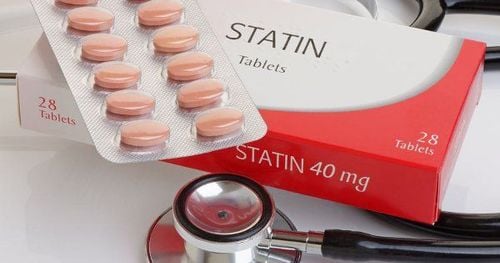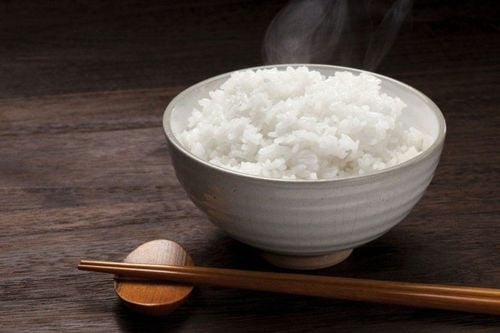This is an automatically translated article.
Eggs are an extremely good food and contain many nutrients. However, the nutritional value of an egg can vary, depending on whether you eat the whole egg or just the egg white. Egg whites contain a lot of protein, but few calories.
1. Nutrition of an egg
Eggs are a healthy food. According to the United States Department of Agriculture (USDA), there are about 72 calories in a 50-gram (g) egg.
The nutrition of an egg exactly depends on the size of that egg. Example:
Small eggs (38 g): 54 calories Medium eggs (44 g): 63 calories Large eggs (50 g): 72 calories Very large eggs (56 g): 80 calories Large eggs (63 g): 90 calories Above is the calorie content of 1 unprocessed egg. When you cook eggs, add oil, butter, or eat with bacon, sausages, cheese, the calorie content of eggs will increase significantly.
If not processed properly, eggs can cause Salmonella poisoning if eaten raw. Salmonella poisoning can cause fever, cramps, and dehydration. Newborns, older adults, pregnant women, and people with weakened immune systems are at increased risk for serious illness. The best way to prevent Salmonella poisoning is to make sure eggs are thoroughly cooked before eating. If you want to eat raw or undercooked eggs, choose pasteurized eggs.
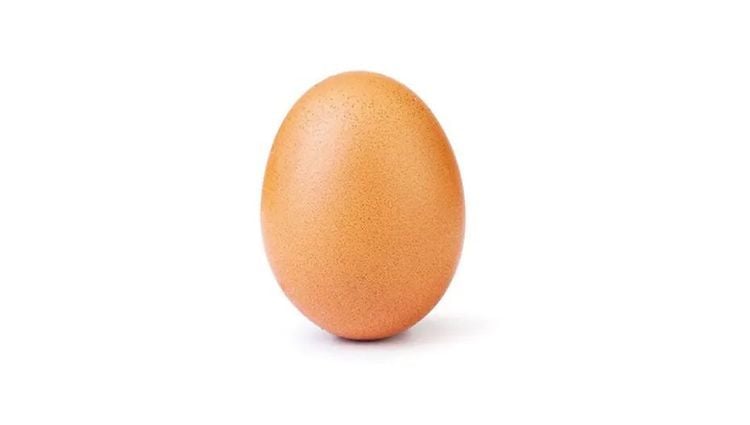
Một quả trứng, trung bình cung cấp 72 calo cho một lần tiêu thụ
2. Nutrition in egg whites
Egg white is the thick, transparent liquid that surrounds the bright yellow yolk of an egg. Egg whites act as a protective layer to protect the developing young from harmful bacteria. It also provides some nutrients for the growth of the chicken during fertilization.
Egg whites are made up of about 90% water and 10% protein. So if you remove the yolk and eat only the egg white, the nutritional value of the egg will change dramatically.
Some benefits of egg whites:
2.1. Egg whites keep you fuller for longer Egg whites are high in protein but low in calories. In fact, egg whites make up about 67% of the total protein in eggs. The protein in egg whites contains all nine essential amino acids in the amounts the body needs to function at its best.
Protein can help curb your appetite. So, eating egg whites can make you feel fuller for longer. However, you still get enough protein content you need, especially if you are in the process of losing weight.
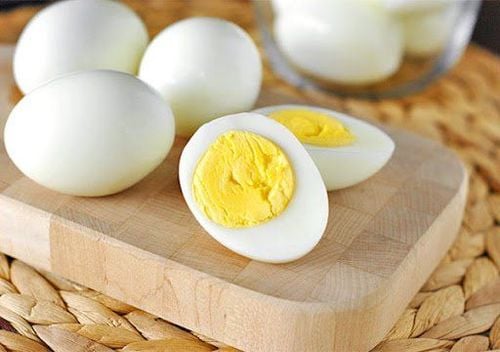
Lòng trắng trứng chứa lượng lớn protein nhưng ít calo
2.2. Low fat and no cholesterol In the past, eggs have been a controversial food due to their high content of saturated fat and cholesterol. However, all of the cholesterol and fat in eggs is found in the egg yolk, not the egg white. Egg whites, on the other hand, are almost pure protein and contain no fat or cholesterol. This means that eating egg whites is considered healthier than eating whole eggs.
According to current research, cholesterol in eggs is not too big of a problem for most people. However, there are some cases where eating eggs will increase blood cholesterol levels slightly. Those are people with high cholesterol. For people with high cholesterol, they should choose egg whites for good health.
Also, because egg whites have almost no fat, they are significantly lower in calories than whole eggs.
3. Nutritional comparison between egg white and egg nutrition
There is a pretty big difference in calories between egg whites and egg yolks. The yolk of a large egg contains about 55 calories while the white contains only 17 calories.
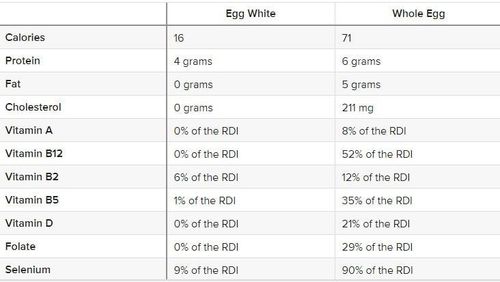
Bảng dinh dưỡng giữa lòng trắng trứng và dinh dưỡng của quả trứng
From the above data table, it can be seen that egg white is high in protein but low in calories, fat and cholesterol, it is suitable for people who are in the process of losing weight. At the same time, it is also beneficial for people with high protein needs but need to monitor calories like athletes or bodybuilders.
However, compared to eggs, egg whites have less other nutrients. Whole eggs contain a variety of vitamins and minerals, added protein, and some healthy fats. Furthermore, despite its high cholesterol content, there was no link between egg intake and heart disease risk.
Egg yolks are also a rich nutritional source of two important antioxidants: lutein and zeaxanthin. These two substances help prevent eye degeneration and cataracts. Eating whole eggs also makes you feel full and helps you eat fewer calories.
3.1 About protein Protein is essential for growth and health. It is also needed to make hormones, enzymes and antibodies. According to research, there are 6.28 g of protein in a large egg and 3.6 g found in egg whites. The recommended dietary allowance for protein is 0.8 g of protein per kg (kg) of body weight. For example, a person weighing 63.5 kg needs about 51 g of protein per day. One egg would provide almost 12% of this person's daily protein needs.

Trứng cung cấp một lượng Protein cho sự phát triển tăng trưởng cho người sử dụng
3.2 About fat About half of the calories in an egg come from fat. One large egg has less than 5 g of fat, concentrated in the egg yolk. About 1.6 g is saturated fat.
Egg yolks also contain healthy omega-3 fatty acids. Omega-3 fatty acids help reduce inflammation in the body and may reduce the risk of chronic conditions like heart disease, cancer, and arthritis. The exact amount of omega-3s varies according to the particular diet of the hens that produce that egg. Some hens are fed diets supplemented with omega-3 fatty acids.
3.3 About Cholesterol You may have heard that egg yolks have a lot of cholesterol. The medium-sized egg contains 186 milligrams (mg) of cholesterol. However, not all cholesterol is bad. Most people can eat an egg or two a day without problems with cholesterol levels.
If your cholesterol is already high or you have diabetes, you can still eat eggs in moderate amounts (four to six per week) with no problem.
3.4 About Carbohydrates Eggs are very low in carbohydrates, with only 0.36 g per large egg.
3.5 About Vitamins and Minerals A wide range of vitamins and minerals can be found in eggs. Eggs are an excellent source of B vitamins, especially vitamin B2 (riboflavin) and vitamin B12 (cobalamin).
Vitamin B12 is used by the body to make DNA, the genetic material in all of our cells. Vitamin B12 also helps keep blood cells healthy, protects against heart disease and prevents a type of anemia called megaloblastic anemia.
Eggs also contain a decent amount of vitamins A, D and E. With the exception of riboflavin, most of the vitamins in an egg are found in the yolk.

Trứng cũng chứa một lượng các vi chất khác nhau có lợi cho sức khoẻ
4. Be careful when egg whites cause allergies
Egg whites are a safe food option. However, in some cases, egg whites can pose some risks:
4.1 Allergies Most egg allergies occur in children. An egg allergy is caused by your immune system incorrectly identifying certain proteins in eggs as harmful.
Mild symptoms you may experience such as: rash, hives, swelling, runny and itchy nose, watery eyes, digestive difficulties, nausea and vomiting. Although rare, eggs can cause a serious allergic reaction called anaphylaxis. This causes a number of symptoms, including a drop in blood pressure and severe swelling in the throat and face.
4.2 Salmonella Infection Raw egg whites also pose a risk of food poisoning due to Salmonella bacteria. Salmonella can be present in eggs or on eggshells, although modern farming and cleaning practices can reduce this risk.
4.3 Reduced Biotin Absorption Biotin plays an important role in energy production. Raw egg whites may also decrease absorption of the water-soluble vitamin biotin. Because raw egg whites contain the protein avidin, which can bind to biotin and prevent its absorption.
Reference source: healthline.com







